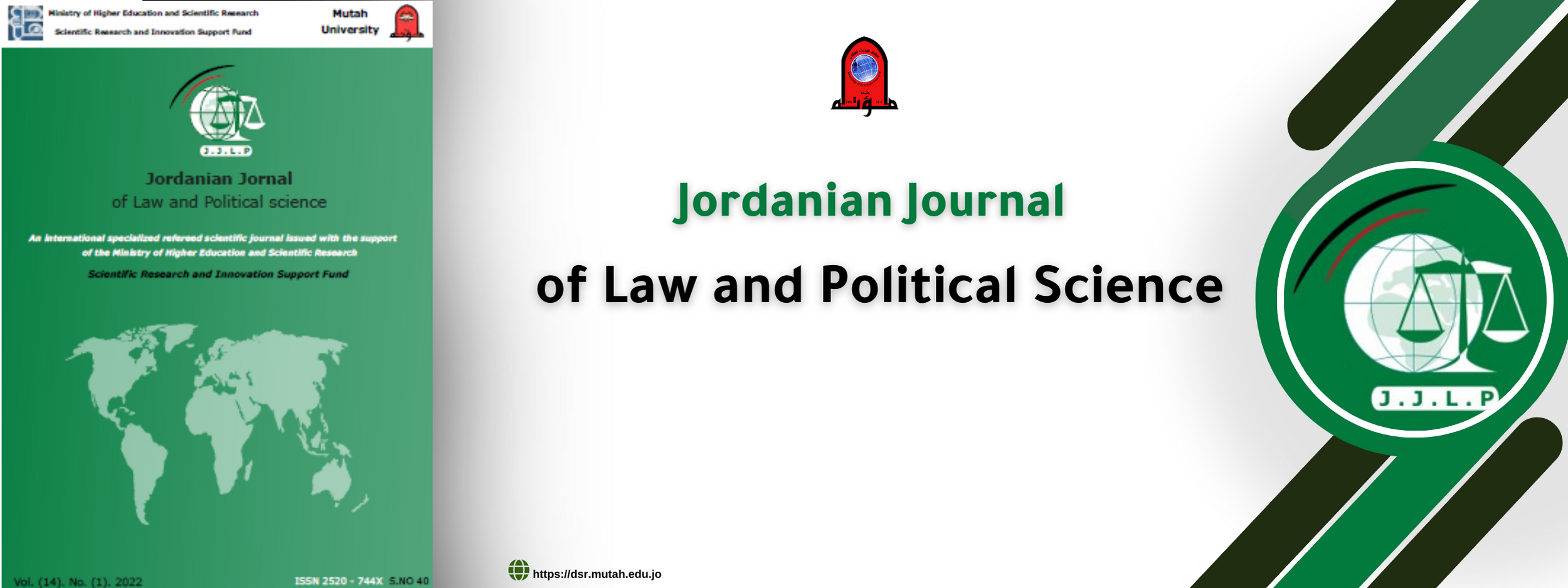The authority of the trial court in referring the unconstitutionality invoked in Jordanian law: a comparative study
DOI:
https://doi.org/10.35682/jjlps.v14i4.370Keywords:
The Trial court, A constitutional suspicion, The referral, A Constitutional CourtAbstract
The unconstitutionality invoked is an axis of reform introduced by the Jordanian constitutional amendment of 2011, as set out in the French Constitutional Amendment of 2008, which was preceded by the Egyptian legislature's approach in the Supreme Constitutional Court Act No. 48 of 1979. Under the Jordanian Constitution and the Constitutional Court Act No. 15 of 2012, individuals' right to challenge the unconstitutionality of laws and regulations is limited to arguing that they are unconstitutional before the Court of law through substantive proceedings.
The referral decision raises questions about its concept, scope, effects, authority, and oversight. The study aims to highlight the Court's role in referring directly to the Supreme Court or the Constitutional Court to determine the constitutionality of legislation suspected of being constitutionalized. It concluded that the trial courts in France, Jordan and Egypt played a vital role in advancing judicial control over the constitutionality of laws. Accordingly, it recommended that Jordan's referral period be shortened and Egypt's period be limited.







